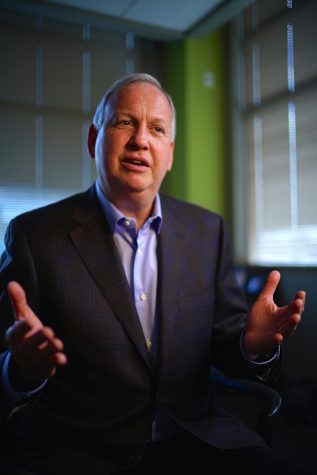
Bart Peterson
Board chair, The Mind Trust & former Mayor, City of Indianapolis Indianapolis
A mayor has the ability to put their hands right on the challenges and figure out solutions unlike, in my view, any other elected official. I've been a big believer in the theory of the importance of the role of a mayor. Now I think we've got enough data behind it to show that you really can make a difference that is unlike a difference that any other elected official can make.
At the end of the day, creating an environment — even an environment in which 100 percent of all kids have the opportunity to get a high-quality K through 12 education, still leaves out the ultimate goal — and the ultimate goal is success in life. The ultimate goal is to be a contributing member of society and for those who have the capacity and ability to be leaders and to be truly among the most successful members of our society, but also at a minimum, for people to be self-sufficient and to be able to make their own way in the world. That involves more than K-12 education. That involves broader social structures and broader social issues within a community. It involves the higher education community.
It involves the economy and the businesses that hire people. All of these things are areas where we have to be concerned if we're actually going to achieve the goal that we're about. Just creating seats for every child, high-quality seats as we refer to them, for every single child in Indianapolis is not enough to guarantee ultimately that every child will have the opportunity to be self-sufficient, have the ability to reach and achieve their God-given potential. What I think mayors can do is, because mayors are so much closer to the actual schools and to the neighborhoods that the school serve and to the people that the schools serve, that they can be forces for reform that it's just too difficult for governors to be.

